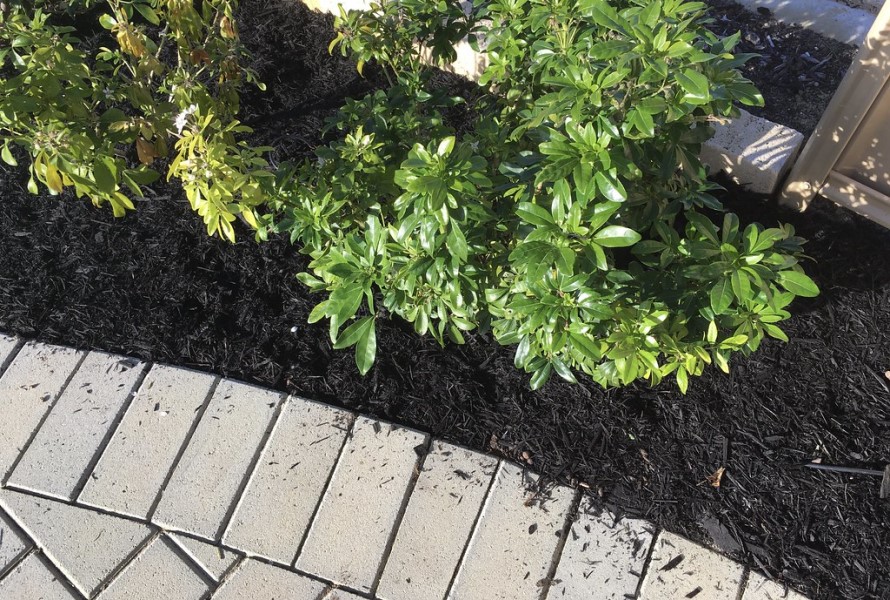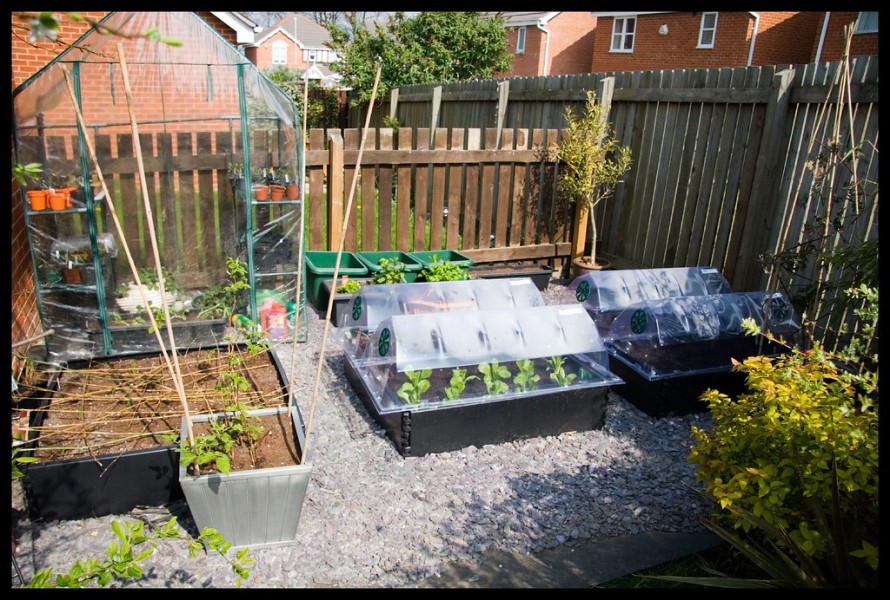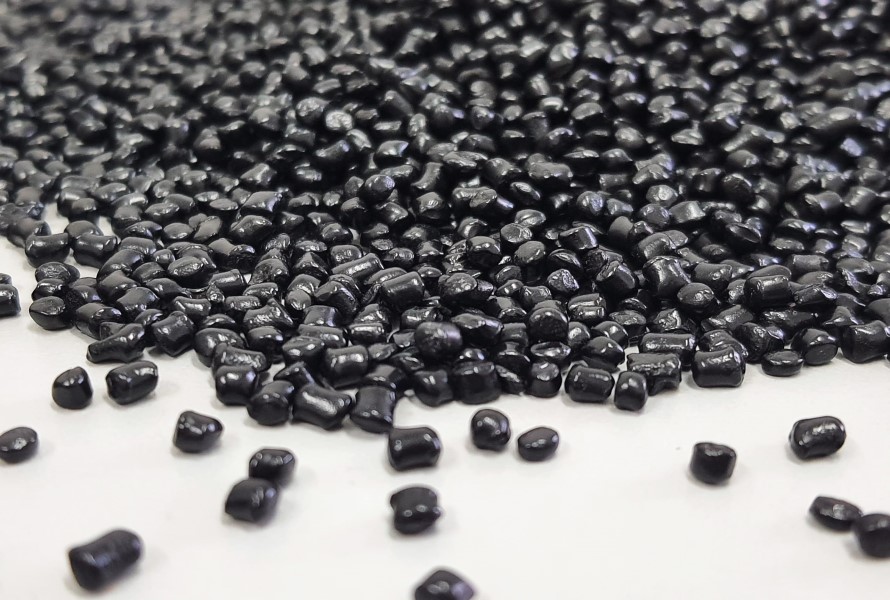Adding black plastic to grow vegetables is an effective way to reduce your workload. Since black plastic mulch regulates moisture and warms the soil, it can significantly lower weeds and increase yields. Though this method has some disadvantages, its advantages outweigh. Let's scroll down for more detail!
1. What is plastic mulch?
Plastic mulch, an inorganic method used by US growers since the 1950s, protects plants from weather by using polyethylene film. Similar to biological mulch, it insulates soil, prevents soil erosion, and reduces moisture evaporation. It is a thin layer of a synthetic film that protects garden soil from weeds, retains moisture, and increases soil temperature; thus, enabling early planting and moderate environmental conditions without a greenhouse. Nowadays, many household gardeners are also beginning to adopt this technique as well.
The most popular type is the LDPE film. It's safe and low-risk for soil leaching, but can release microplastics and degrade over time. The synthetic mulch is applied and secured with soil or staples.Although it comes in a variety of colors, the most popular ones are dark green and black plastic because they absorb sunlight and heat the ground beneath them. The opposite effect is produced by white and light-colored films, which can lower the bed temperature by up to 20°F. This is particularly advantageous for growing in extremely hot climates.
2. 7 benefits of using black plastic in gardening
2.1. It conserves soil moisture
Black plastic mulch helps conserve soil moisture by preventing evaporation, allowing more moisture for plant roots and reducing watering time. This is particularly beneficial in sandy soils and during vacation periods when no one is around to water the vegetables.
Black masterbatch's water conservation effect is reversed as rain and overhead irrigation don't penetrate it, relying on water from other sources. To ensure proper watering, thoroughly water the ground before plastic covering, install drip tape after planting, or pour water into planting holes.

2.2. It regulates the soil temperature
Black plastic can increase soil temperature by 3 to 5 degrees F, allowing plants to grow earlier in spring and be transplanted earlier. This benefits the plant's roots and growth, allowing for earlier harvesting of vegetables as they mature later in the season.
However, soil temperature increases in warmer areas can harm plants, damaging roots and growth. To mitigate this, plant leaves should spread out and shade the plastic, and organic mulch like grass clippings, pine needles, hay, straw, or compost can be applied over the plastic to prevent excessive heat.
2.3. It controls the weed
It's impossible for weeds to grow in darkness, so black plastic mulch is best used in early spring before the growing season starts. This prevents weeds from spreading and prevents new weeds from sprouting. Once the plastic is cut for planting, any weeds that remain will die and won't compete with young plants for water or soil nutrients.
However, keep in mind that weeds can grow in areas not covered by plastic mulch, including the holes where vegetables were planted and spaces between mulched beds. To prevent overgrowth and weed seed generation, mow or hoe the weeds, spray herbicides, or spread organic mulch. It's crucial to remove these shoots early in the season to prevent weed seeds.
2.4. It preserves nutrients
Vegetable crops can suffer from heavy rainfall because it removes nutrients from the soil and fertilizer. In places where significant rainfall washes away the soil itself, black plastic reduces soil erosion by keeping rain from penetrating the soil and preserving both artificial and natural nutrients.
On the other hand, fertilizer application is hampered by black plastic during plant growth. Thus, before using black plastic mulch, fertilizer should be applied. Later in the growing season, foliar fertilizer should be applied to leaves, or liquid fertilizer can be poured through planting holes. Liquid fertilizer can be applied through drip tape if it is installed. For correct application, adhere to the package instructions.

2.5. It's easy to apply
Black plastic is a multipurpose, user-friendly material that minimizes soil compaction by serving as a barrier between plants and soil. It works well on raised beds as well as flat ones, and in regions with long growing seasons, it can even be used to grow two crops in one bed. Before degrading, the plastic usually lasts two years.
2.6. It prevents erosion
Erosion, caused by wind and rain, is a significant issue in soil degradation worldwide and is equally crucial in backyard gardens. To maintain the integrity of your soil, it is essential to use plastic films to protect it from the harsh elements and maintain its natural state.
2.7. It brings cleaner fruits
Fruit can be kept fresher and require less washing by using plastic to stop it from rotting in the ground. Plastic resting helps slow down the growth of low-growing fruits, such as strawberries, by preventing mold and slug damage. Laying on a clean surface is beneficial for vine crops such as cucumbers and melons, particularly in situations where a trellis is not available.
Furthermore, plant leaves are less likely to come into contact with and become infected by soil-dwelling fungi. Black plastic also lessens soil compaction by eliminating the need for frequent weed-eating patrols that require walking on the soil.
3. An introduction to EuroPlas black masterbatch
If you are looking for a material solution that enhances end-products' black look, you should not miss the black masterbatch from EuroPlas. Our masterbatch does not only provide exact color but also possesses improved features to ensure a high-quality final product. Besides, we also provide specialized black masterbatch products with diverse effects according to the requirements of the finished product.

Our black masterbatch is a concentrated color granule made of carbon black, primary resin, and additives. It is known for its UV resistance, endurance in harsh weather conditions, and homogenous dispersion. Europlas offers a wide range of black masterbatches with mechanical properties suitable for various industries, including electronic, electrical, automotive, agriculture, construction, and packaging.
If you have any questions about black masterbatch or any other industrial materials, don’t hesitate to contact us for the best advice.